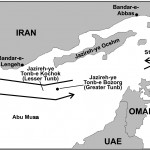At Chimtala, near Kabul, Indian engineers huddle at a review meeting. Bharat Heavy Electricals is in charge of the sub-station, which is part of the US$ 110 million project. The ambitious project has received threats from various terror outfits. But Indian officials in charge say none have been carried out because the local people have come out firmly in support of the project. India’s humanitarian and development aid to Afghanistan is making real and perceptible difference in the lives of the Afghans, and is perhaps the best strategic investment India is making in its long- term battle against terrorism. “Indians enjoy tremendous goodwill in Afghanistan because of India’s significant assistance to Afghanistan. They are doing their best, and after US they are the second country with the largest amount invested in the reconstruction of Afghanistan,” says Farida Nekhzad, Managing Editor, Pahjwok News Agency.
At the Afghanistan-India Vocational Training Centre, set up by the Confederation of Indian Industries, signs of change are visible. Modeled on the Industrial Training Institutes in India, this centre in Kabul is training Afghans to take part in rebuilding their country. A carpentry apprentice says: “I will set up a carpentry workshop once my training is over. There are many opportunities available for those who can take part in the reconstruction economy. As a professional carpenter I can earn 60 to 90,000 Afghani.” Colonel (Retd) Ravindra Kharbanda, Project Director, Afghanistan-India Vocational Training Centre says. “The training the Afghans are getting in this institute will enable them to get employment in the reconstruction and rebuilding economy of their country. We are training the Afghans so that they can be employed and improve the economy of their country.”
Indian trainers like Jagdish Kumar are creating a skilled workforce for Afghanistan. “In Afghanistan, lot of construction is going on, so, if they learn here properly then they can earn a livelihood. We give them training about everything regarding construction,” says Jagdish Kumar, Masonry Trainer in the Afghanistan-India Vocational Training Centre. Colonel Kharbanda says he has been getting calls from many provinces of Afghanistan requesting him to set up industrial training centres. “I have been inundated with calls from governors and provinces, on whether we could accommodate their people, and whether such a facility can be opened in their state,” he says.
At the Bagh-e-Zanana in Kabul an Indian NGO, the Self Employed Women’s Association or SEWA, has set up a first-of-its-kind vocational training centre for Afghan women. The Gujarat-based NGO opened this training centre in 2006. The aim is to empower Afghan women by training them in vegetable farming, food processing and entrepreneurship. “I have a garden. When I complete my training I want to convert this garden into a vegetable farm and start a new business,” says an Afghan woman trainee. “I am learning how to make juices and jams. Once I am fully trained I will start a home- based business and sell these products in the market. I am sure I will be able to give my family a good standard of living,” says Ruhella.
The Bagh-e-Zanana is now a meeting ground for Afghan women to start friendships and partnerships and discuss on ways to be economically secure and independent. This would have been impossible eight years ago when the Taliban ran the country. “If we organise ourselves as a group then we can earn more money and with that money we can support our families,” says a group of women at the SEWA training centre in Kabul. Many such groups of women are planning to start home-based businesses after they leave the centre. “We will earn more money if we set up a co-operative. If we join hands and pool resources, we will be better off than doing business on our own,” says Nafisa. The spirit of these Afghan women has got Kabul and New Delhi to keep up the momentum. SEWA is now planning to set up a Community Business Resource Centre at Bagh-e-Zanana.
Conclusion
India is making a difference in Afghanistan by training and imparting skills to Afghans, enabling them to join the rebuilding and reconstruction effort in their country. One of the biggest insurance of Kabuliwallahs against instability is India’s humanitarian and development aid. India lives in the heart of every Afghan. No wonder, the Pakistan and ISI are worried that with every passing day its so-called “strategic depth” is becoming shallower by the minute. That’s why the ISI planned the terror attack on the Indian Embassy in Kabul.




